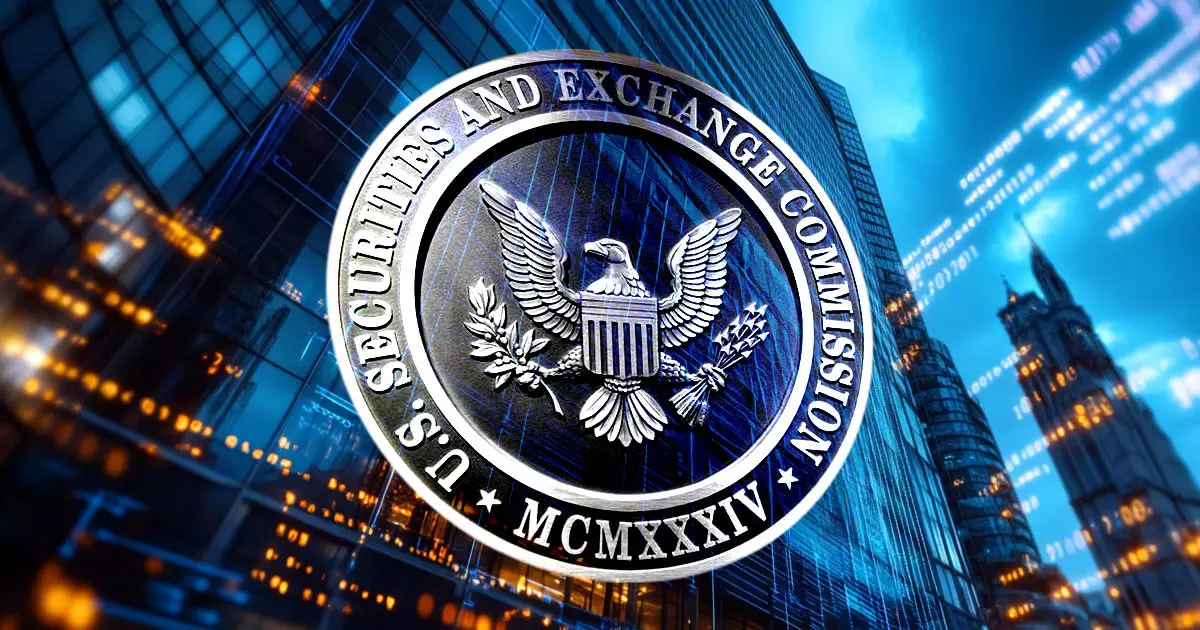The landscape of digital asset regulation is undergoing a significant metamorphosis as the U.S. Securities and Exchange Commission (SEC) has announced its newly established Cyber and Emerging Technologies Unit (CETU), superseding its previous Crypto Assets and Cyber Unit. This initiative is not merely a rebranding but a strategic realignment of the SEC’s approach to the rapidly evolving realms of technology and finance. By focusing on innovative regulation, the SEC aims to enhance protection against sophisticated financial crimes while fostering an environment conducive to technological innovations.
Announced on February 20, the CETU is positioned to tackle a myriad of modern economic crimes. It will concentrate on diverse issues ranging from artificial intelligence-driven fraud schemes to darker, less visible areas like social media manipulation and cybersecurity compliance failures. Leading this ambitious unit is Laura D’Allaird, formerly the deputy director of the SEC’s Division of Enforcement. With a cadre of 30 specialized attorneys and fraud experts distributed across nine SEC regional offices, the CETU aims to consolidate knowledge and strategies in fintech, cybersecurity, and blockchain technology to better address the complexities of today’s financial crimes.
By merging various specialties, CETU reflects a comprehensive grasp of the different threads that intertwine to create the digital financial ecosystem. As fintech continues to disrupt traditional banking and investment sectors, the expertise of this unit is vital in identifying and mitigating potential pitfalls that could adversely affect investors.
Integral to CETU’s mission is its proactive collaboration with the Crypto Task Force led by Commissioner Hester Peirce. This partnership underscores a dualistic mission: while CETU aims to enforce compliance and safeguard investors, it also emphasizes the need to cultivate innovation. Acting SEC Chair Mark Uyeda asserts that protecting investors, capital formation, and market efficiency are not opposing objectives. This philosophy aims to dispel the notion that regulatory scrutiny inherently stifles innovation. Instead, it seeks to build a framework where innovation thrives under the watchful eye of effective regulation.
This collaborative ethos may signal a significant pivot in how regulatory bodies interact with emergent technologies, defining a course that intertwines the world of accountability and adaptability. The CETU aims to be a guardian of ethical standards while ensuring that market forces can freely traverse and explore new boundaries of technology.
CETU’s strategic priorities delineate a landscape of critical focus areas, specifically targeting AI-integrated fraud schemes, dark web associated activities, hacking of confidential information, and the burgeoning realm of cryptocurrency-related fraud. Notably, the unit’s mandate distinguishes between outright fraud and the regulation of securities—a nuance that could have broader implications for how digital asset compliance is perceived in the financial space.
Moreover, while the previous SEC administration under Gary Gensler faced criticism for its sometimes aggressive posture towards traditional firms in the crypto space, such as Coinbase and Ripple, the CETU’s formation indicates an attempt to learn from these experiences. The unit’s established focus on blockchain technology for fraud rather than purely defining digital assets as securities might suggest a more adaptable approach moving forward, one that acknowledges and embraces the distinctiveness of each case.
Accompanying the creation of CETU is a series of broader reforms initiated during the Trump administration. These measures—such as clarifying crypto classification rules and reinstating favorable accounting guidelines—indicate a desire to position the U.S. as a bulwark of blockchain innovation globally.
In a world where digital currencies and assets are increasingly becoming integral to global finance, the CETU represents a crucial pivot towards adapting to new technological realities rather than clamping down with outdated regulatory frameworks. By emphasizing both security and growth, the SEC appears to be strategically acknowledging the permanence and potential of blockchain technologies in financial markets.
Ultimately, the CETU’s establishment could serve as a significant turning point in how regulatory entities deal with technological disruptions. By prioritizing fraud prevention and cybersecurity compliance while allowing innovation to flourish, the SEC is potentially positioning itself as a leader in the complex interplay of technology, regulation, and market confidence, paving the way for a more robust financial future.



















Leave a Reply